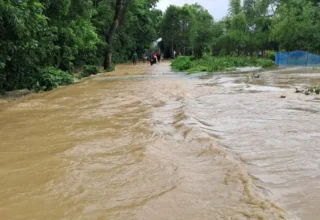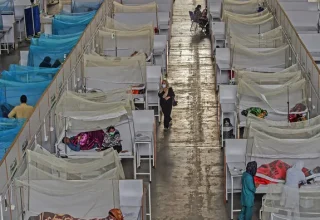
A sedentary lifestyle is characterised by prolonged periods of inactivity and minimal physical movement, often associated with activities such as sitting, watching TV, and working at a computer. This lack of physical activity can significantly increase the risk of various cancers through multiple mechanisms. While regular exercise and an active lifestyle are crucial in mitigating these risks and maintaining overall health, it’s important to understand how a sedentary lifestyle increases cancer risk. Read on as we discuss this in detail.
Here’s how a sedentary lifestyle can increase cancer risk:
- Obesity & increased body fat
Lack of physical activity leads to weight gain and obesity. Excess body fat produces hormones and growth factors that can promote cancer development, particularly in breast, colon, and endometrial cancers.
- Chronic inflammation
Sedentary behaviour can lead to low-grade chronic inflammation, which is linked to the development of cancer. Inflammatory markers such as C-reactive protein are often elevated in inactive individuals. Incorporate anti-inflammatory foods and reduce sedentary time.
- Insulin resistance & elevated insulin
Physical inactivity can lead to insulin resistance and higher insulin levels, which may promote cancer cell growth, particularly in colon and breast cancers. Regular exercise helps improve insulin sensitivity. A diet low in refined sugars and high in fibre can be helpful.
- Hormonal imbalances
Sedentary lifestyles can disrupt hormonal balance, particularly increasing oestrogen levels in postmenopausal women, which is a risk factor for breast and endometrial cancers. Regular physical activity helps regulate hormones.
- Altered immune function
Lack of physical activity can impair immune function, reducing the body’s ability to detect and fight cancer cells. Engage in regular moderate exercise, which has been shown to enhance immune function. Adequate sleep, a healthy diet, and stress management are also crucial.
- Digestive health
Sedentary behaviour can lead to poor digestive health, including slower bowel transit time, increasing the risk of colorectal cancer. Increase physical activity to promote regular bowel movements. A diet high in fibre from fruits, vegetables, and whole grains can also improve digestive health.
- Oxidative stress
Physical inactivity can increase oxidative stress, which damages cells and DNA, leading to cancer development. Regular exercise enhances the body’s antioxidant defences. Consuming foods rich in antioxidants can also reduce oxidative stress.
- Poor circulation
Sedentary lifestyles lead to poor circulation, which can impair the delivery of oxygen and nutrients to cells, promoting a cancer-friendly environment. Practices such as stretching, walking, or even standing up frequently can help enhance blood flow.
- Mental health & stress
Physical inactivity is linked to poor mental health and increased stress, which can indirectly affect cancer risk by promoting unhealthy behaviours like smoking and poor diet. Exercising regularly and incorporating mindfulness practices such as meditation or yoga can also help manage stress levels.
- Vitamin D deficiency
Sedentary behaviour, particularly staying indoors, can lead to vitamin D deficiency, which is associated with an increased risk of several cancers, including breast and colorectal cancers. Spend time outdoors in sunlight to boost vitamin D levels, or consider taking vitamin D supplements.
By addressing these risk factors through lifestyle modifications, including regular physical activity, a balanced diet, stress management, and adequate sunlight exposure, individuals can reduce the cancer risk associated with a sedentary lifestyle.













































